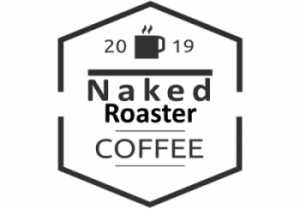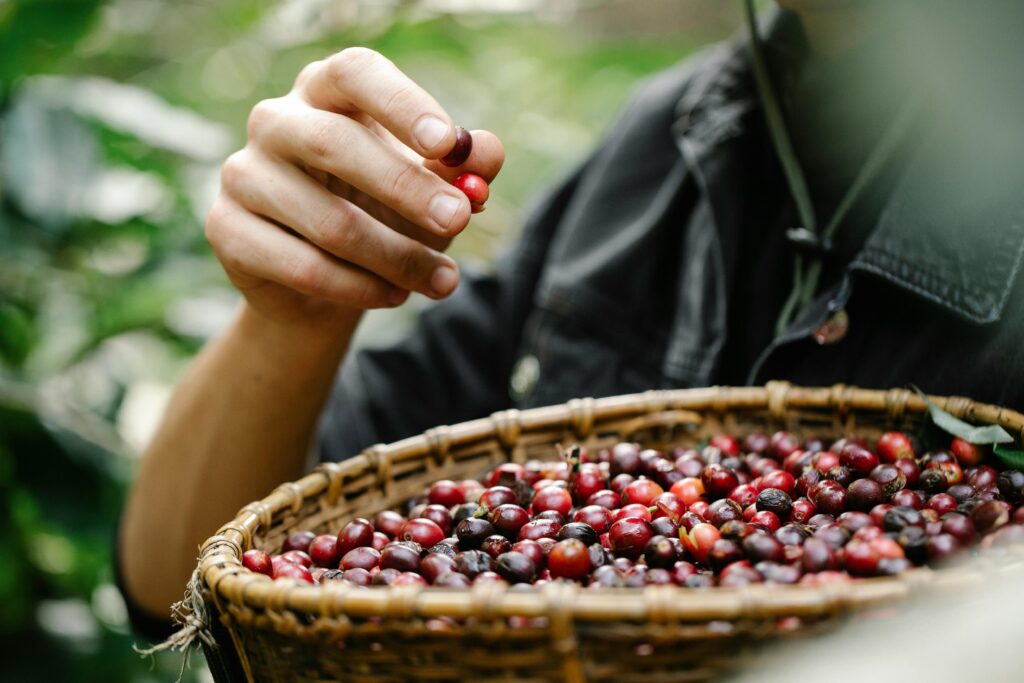Introduction: Why Your Coffee Matters
Coffee is more than just a morning pick-me-up—it’s an experience. Yet, many people still opt for supermarket coffee, unaware that they’re missing out on a much richer, more flavourful experience. While supermarket coffee may be convenient and affordable, it simply doesn’t compare to the quality, taste, and ethical sourcing of specialty coffee.
As specialty coffee roasters based in Scotland, we believe in the importance of understanding where your coffee comes from, how it’s produced, and how it’s roasted. In this blog, we’ll explain the key differences between specialty coffee and supermarket coffee, and why we think that specialty coffee is not just a better choice—it’s the only choice for true coffee lovers.
What is Specialty Coffee?
Before we dive into the differences, let’s clarify what we mean by “specialty coffee.” Specialty coffee is coffee that has been carefully cultivated, harvested, and processed to highlight the unique characteristics of the beans. It’s the highest grade of coffee available and is typically rated 80 points or higher by certified cupping professionals.
Key characteristics of specialty coffee include:
- Sustainably sourced: Often grown in small quantities by farmers who focus on quality and sustainability.
- Freshness: Roasted in small batches to maintain the natural flavours of the beans.
- Variety: Specialty coffee beans come from specific regions and are often single-origin, offering unique flavours based on the terroir.
- Flavour complexity: The beans are roasted to highlight specific tasting notes, like fruity, nutty, floral, or chocolatey flavours.
In contrast, supermarket coffee is often mass-produced, pre-ground, and lacks the attention to detail that defines specialty coffee.
The Supermarket Coffee Experience: Convenience but at What Cost?
Supermarket coffee is often mass-produced, sold in pre-ground form, and found in convenient, branded packaging. While this is an easy option for busy consumers, it comes with a number of drawbacks:
1. Quality of Beans
Most supermarket coffee uses lower-quality beans, often from large-scale, industrial coffee farms. These beans are typically lower in flavour complexity, consistency, and overall quality. Coffee is a delicate product, and low-quality beans are often roasted at high temperatures to mask their flaws. The result? A bitter, one-dimensional cup of coffee that lacks the vibrancy and nuances of a high-quality brew.
2. Pre-ground Coffee
Another common feature of supermarket coffee is that it’s usually pre-ground. Pre-ground coffee loses its flavour and freshness much more quickly than whole beans. The moment coffee is ground, it begins to oxidise and lose its volatile compounds, which are responsible for the aromatic and flavour notes we love. In contrast, specialty coffee roasters encourage brewing with freshly ground beans for the best experience.
3. Mass Production
Supermarket coffee is generally produced in bulk, with an emphasis on quantity over quality. This means it’s not roasted with care or attention to bring out the best in each individual batch. Mass-produced coffee often lacks the nuance and complexity found in specialty coffee, which is hand-crafted to showcase unique flavours from specific regions.
4. Lack of Transparency
Supermarket coffee is often sourced from large, anonymous farms or through supply chains that don’t prioritise ethical sourcing or sustainability. As a result, consumers may unknowingly support practices that harm the environment or exploit coffee farmers.
Why Specialty Coffee is Far Superior
Now that we’ve outlined the limitations of supermarket coffee, let’s dive into why specialty coffee is a far superior choice for the discerning coffee lover.
1. Superior Taste and Flavour Profiles
Specialty coffee stands out for its complex and varied flavour profiles. Depending on the region and the roast, you might experience fruity, floral, or nutty notes, or even taste hints of chocolate, caramel, and spice. This is due to the careful processing methods used in specialty coffee, such as hand-picking beans, washing or fermenting them, and roasting in small batches to bring out their unique characteristics.
In contrast, supermarket coffee tends to have a one-size-fits-all flavour profile, often with an overwhelming bitterness that masks any real complexity. It’s often roasted at higher temperatures to reduce the bean’s inherent flaws, leading to a less enjoyable and flat tasting cup.
2. Freshness Makes a Huge Difference
Freshness is one of the key factors that set specialty coffee apart. Specialty coffee roasters typically roast small batches and ship them directly to customers, ensuring that the coffee you receive is at its peak flavour. Freshly roasted coffee releases carbon dioxide and aromatic compounds that give it its unique taste. Supermarket coffee, on the other hand, is often roasted weeks or even months before it reaches the shelf, resulting in stale coffee that’s lost much of its original flavour.
3. Ethical Sourcing and Sustainability
One of the main advantages of specialty coffee is the focus on sustainability and ethical sourcing. Many specialty coffee roasters work directly with farmers, ensuring fair wages and improving living conditions for coffee producers. These partnerships often focus on environmental sustainability, helping farmers grow coffee in ways that protect ecosystems and promote biodiversity.
Supermarket coffee, however, is often produced through large-scale farming operations that may not prioritize ethical practices. Low prices and high volumes can lead to exploitation, poor working conditions, and environmental degradation.
4. Transparency and Traceability
With specialty coffee, you know exactly where your beans come from. Many specialty coffee brands offer full traceability, meaning you can learn about the specific farm, the processing methods, and the journey of the beans from the farm to your cup. This transparency not only helps consumers make informed choices but also strengthens the relationship between farmers and roasters.
Supermarket coffee, on the other hand, often lacks such transparency. Many supermarket brands blend beans from various sources, making it difficult to know where the coffee actually came from or how it was produced.
5. Supporting Small Producers
When you buy specialty coffee, you’re often supporting small, independent farmers and roasters rather than large corporations. By choosing specialty coffee, you’re directly contributing to a more sustainable and equitable coffee supply chain. Specialty coffee roasters, like us, focus on building relationships with farmers and supporting the communities that grow the coffee beans.
Brewing Better Coffee: Make the Switch to Specialty Coffee
If you’re still buying supermarket coffee, it’s time to make the switch. Specialty coffee offers an unparalleled experience that elevates your daily brew. By choosing specialty coffee, you’ll enjoy fresher, tastier coffee while also supporting ethical practices and sustainability.
At Naked Roaster Coffee, we pride ourselves on delivering the best in specialty coffee. Whether you’re new to the world of specialty coffee or a seasoned enthusiast, we’re here to guide you on your journey to a better cup. From single-origin beans to expertly roasted blends, every cup of our coffee tells a story—one of quality, craftsmanship, and ethical sourcing.
Ready to taste the difference? Visit our online store to explore our selection of freshly roasted specialty coffee beans, and make your mornings (or afternoons) extraordinary.
Call to Action (CTA):
Don’t settle for subpar coffee. Try the best in specialty coffee and taste the difference for yourself. Explore our range of freshly roasted beans today!

